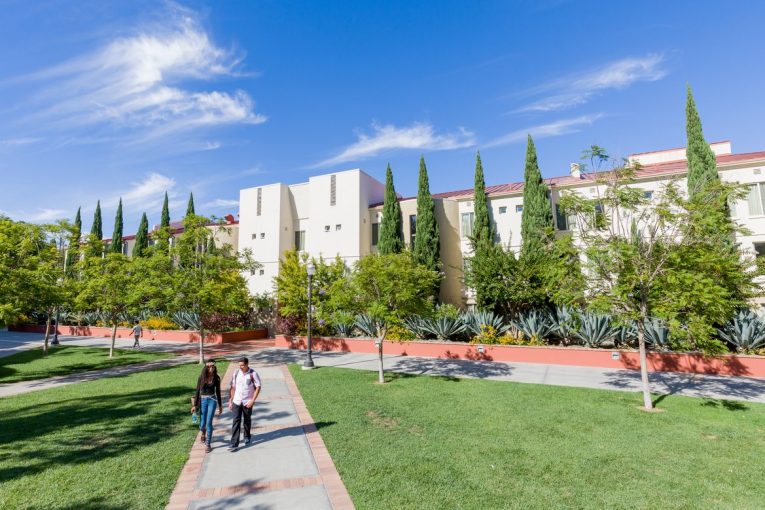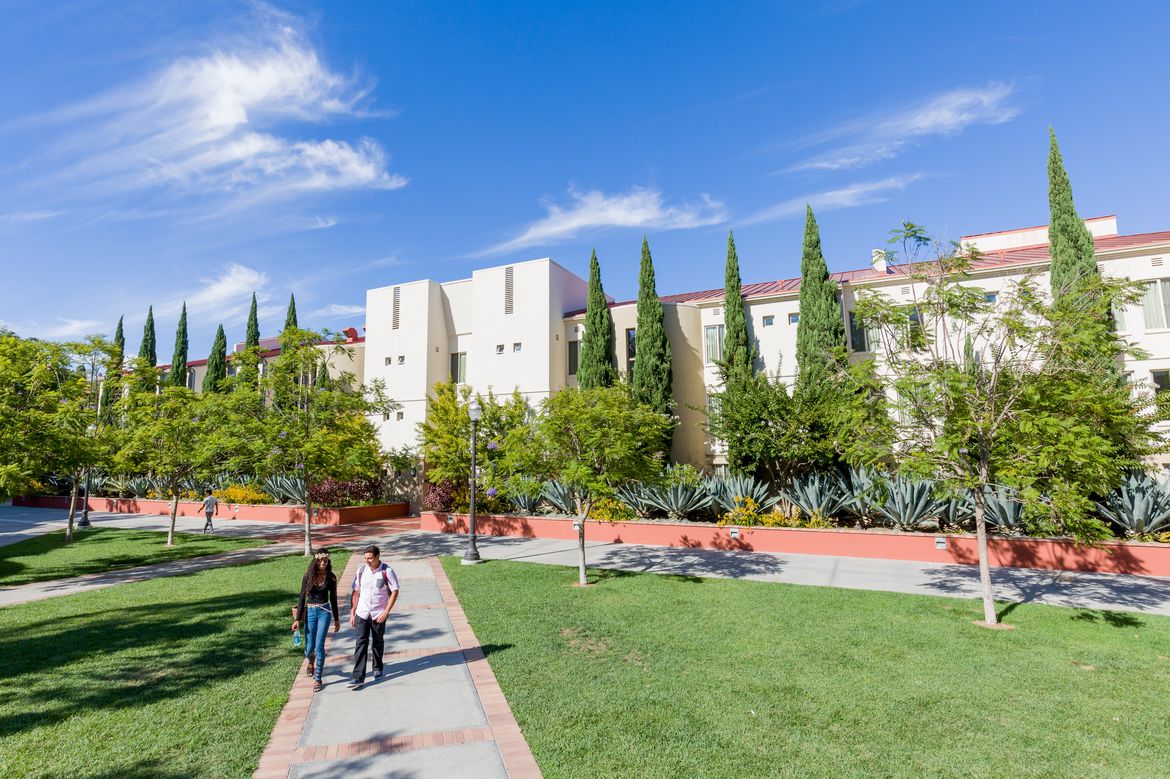

By Vanguard Staff
Sacramento, CA – A bill that will make it easier and faster for UC, CSU, and community colleges to build on-campus housing for students and faculty has passed the Assembly Natural Resources Committee by a vote of 5-1. It now heads to the Assembly Appropriations Committee.
SB 886, sponsored by Senator Scott Wiener, streamlines and accelerates student and faculty housing production across the state and increases the supply of housing so more students and faculty can live on campus. SB 886 gives more students the opportunity to attend California’s public colleges and universities.
The legislation exempts from CEQA student and faculty housing projects built on land owned by UC, CSU, or community colleges. CEQA, at times, has been used to stop or delay new student housing from being built.
SB 886 effectively provides UC, CSU, and CCC the same ability to create new student and faculty housing that many cities already have through state housing streamlining laws.
“Our public colleges and universities are an important pathway to the middle class for California young people,” said Senator Wiener. “But we are taking away that opportunity when we don’t provide enough housing for students. Students should never have to choose between getting an education and having a stable place to sleep at night. SB 886 will help ensure we have enough housing for students  and faculty.”
and faculty.”
This was a bill that students at UC Davis in cooperation with students at UC Santa Cruz started working on, connecting with California YIMBY to do something on CEQA and student housing.
Michelle Andrews, the past Legislative Director of ASUCD at UC Davis, told the Vanguard, “In a nutshell, it’s going to make housing a lot more accessible for students and faculty at all colleges in California.
“We know that more housing needs to be built,” she said. “But we also know that NIMBYs work really hard to get it blocked whenever it’s in their towns. So we wanted to kind of minimize the impact that NIMBYs are able to have on the construction of student housing by making this bill focused just on campus, so they can’t say hey, it’s not the city’s responsibility to build housing.”
California’s lack of student housing drives college students into homelessness. According to a 2021 report by the Legislative Analyst’s Office, 5% of UC students are currently experiencing homelessness. That number rises to 16% when those living in hotels or transitional housing are included. For CSU students, the rate of homelessness during the academic year is 10%. With over 280,000 students currently enrolled in UCs and 485,000 in CSUs, this means that over 60,000 students at four-year universities in California are currently facing homelessness, with even more facing housing insecurity.
The statistics are even more jarring for our community college system. In a 2019 survey of 40,000 California community college students, 19% of students had been homeless in the last year while 60% had experienced housing insecurity. With 1.8 million Californians currently attending community college, this means over 1 million community college students in this state alone are unable to find an adequate and affordable place to live while pursuing a degree.
The lack of student housing also impacts California’s urgent need to expand access to public higher education for California youth. The UC system, for example, received record amounts of applications in 2021 and has expanded enrollment as demand has increased. The growth in admissions, combined with decades of limited housing development, has left campuses without the necessary shelter for their students or staff. Schools have revoked housing guarantees, and housing waitlists continue to grow. In the fall of 2021 alone, 13 CSU campuses reported having 8,700 students on waitlists for housing, while 8 UC campuses reported 7,500 students—a combined total of over 16,000 students unable to gain access to housing through the university they attend.
Although half of CSUs and all UCs have added housing capacity since 2015, the rate at which these projects are ready to be inhabited has not matched the rise in admissions. One issue facing potential housing projects for students and faculty is the prevalence of CEQA appeals and lawsuits.
CEQA requires state and local agencies to evaluate and disclose the significant environmental impacts of projects they approve and to avoid or mitigate those impacts if possible. CEQA is a critically important law that protects the environment from projects such as refineries that pollute natural resources and jeopardize health, especially for historically marginalized and underserved populations.
However, the CEQA process is subject to appeals and lawsuits that can increase project costs and create delays for reasons completely unrelated to the environment. It’s not unusual for it to take three to four years and millions of dollars to resolve a single lawsuit, while pre-lawsuit appeals regularly take six months to resolve. The delays and excessive costs associated with CEQA can slow down projects, or even prevent proposals from moving forward.
Using CEQA to delay or halt student and faculty housing projects has greatly impacted California campuses, increasing the cost of living in and around campuses, pushing thousands of students and staff into housing insecurity or homelessness. Moreover, increasing on-campus student and faculty housing is inherently environmentally beneficial, as students and faculty can walk to work or school, rather than driving long distances due to the extreme cost of housing.
To qualify for this exemption, projects must be on a UC, CSU, or CCC campus, utilize prevailing wages and a skilled and trained workforce, not utilize land demarcated as farmland, wetlands, or a very high fire hazard severity zone, and not result in the demolition of rent-controlled or affordable housing. Additionally, projects must be consistent with Long Range Development Plans or Master Plans that have been certified no more than 15 years before the project, have a transportation demand management program, and mitigate all construction impacts. Projects cannot result in any net additional emissions of greenhouse gasses.
To qualify for this exemption, each building within a development must be LEED Platinum certified, and have no more than 33% of the square footage be used for dining, academic or student support spaces. Projects must be located within half a mile of a major transit stop, half a mile of the campus boundary, or have 15% lower per capita VMT. Lead agencies must hold at least one hearing—with public notice—for a project.






.
I believe a whole lot of people from Davis should contact Assembly member Aguiar-Curry and ask her to add an amendment to this bill that makes it easier and faster for California college/university communities to build off-campus housing for students and faculty. That amendment would end the Housing and Community Development’s (HCD’s) current practice of labeling off-campus student housing as “group housing” and as a result not giving those communities RHNA credit for the student housing built off-campus.
Our City elected officials should put a communications full-court press on Aguiar-Curry as well. As should our City Manager. They should also contact their peers in the other UC and CSU cities to enlist their support as well.
Might be a separate bill, maybe its something that could be raised by ASUCD to facilitate student housing.
A related article on the rise of the YIMBY movement:
https://www.smartcitiesdive.com/news/yimby-movement-zoning-multifamily-housing/625475/
YIMBY: The making of a movement
This legislation will be useless regarding UCD because UCD, in their continued negligence regarding the provision of adequate on-campus housing for decades, is not applying for any of $500 million that Gov. Newson which he has allocated for UC and CSU student housing. This is just more inexcusable behavior by UCD in that UCD still has not planned enough on campus student housing, which it can. Instead, it continues to build student housing which is far too low in density.
For example, it is shameful that the UCD graduate student Orchard Park project on-campus on Russell Blvd near Hwy. 113, is a mere 4 -stories, while the privately developed student housing project, Davis Live is 7 -stories on the opposite side of Russell in the City. In fact, Orchard Park has fewer beds then was planned originally in the LRDP. Plus, it took them more then 7 years to get it to break ground which left a significant deficit of graduate student housing.
In turn, this UCD graduate student housing need got pushed off campus onto Davis and surrounding cities, just like the undergraduate student housing needs UCD has been deflecting off campus for decades. As a result, the lack of adequate on-campus housing for UCD’s accelerated student population growth has caused a major negative impact on Davis’ housing availability for local workers and families.
UCD continues to grossly underperform in its land use planning and continues to squander opportunities to build adequate on-campus student housing.
It is ironic that while UCD teaches sustainable planning, it does not practice it itself. Simply astonishing incompetence…
A 7-story building at Orchard Park is not appropriate for family housing because a height above 4 stories requires an elevator ride to get to the top stories. Married student housing is populated by young families with young children for whom the requirement to ride an elevator for every trip would be burdensome. Maybe 9 stories works in Manhattan for coops, but its also in dense neighborhoods where most services are within a block. I’m all for increased density where ever possible, such as the University Commons rebuild, but context is always important.
We also must not disenfranchise students by pushing them onto campus. They are members of our community and have a right to participate in decision making in our town. They should be allowed to live where they can vote. Otherwise we’re just establishing another form of apartheid.
True sustainability planning by UCD would have it coordinating and integrating its plan with the City so as to minimize resource use. That means upgrading buildings throughout town, accelerating electrification in multi family housing in town, and enabling and expanding electrified mobility services around town. Just shoving more housing on campus has nothing to do with sustainability.
BTW, increasing housing and business development in Davis that must meet higher sustainability standards that those applied in surrounding communities would be a true sustainability policy. Why is agricultural land next to Davis more sacrosanct than farmland next to Woodland, West Sacramento, Winters, Dixon or Vacaville?
Interestingly-enough, SACOG doesn’t view them that way. Or at least, not housing specifically-intended for them.
The city was warned about this, prior to approving the megadorms. They did it, anyway. And as a result, is facing entirely-predictable challenges related to RHNA requirements.
If they’re living on campus, then they are not residents of Davis (and by definition are not eligible to vote on city issues). That is not “apartheid” – that’s how all voting works. (And is the reason that anyone who lives outside the city cannot vote on issues limited to the city of Davis.)
Others have pointed this out to you (more than once), but you haven’t addressed any of these realities.
Whether or not they’re “members of our community” (while living on campus) – perhaps you should define that.